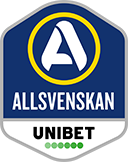
The Swedish Football Association (SvFF) is the national governing body for football in Sweden. SvFF was founded 18 December 1904 and is the largest national sports federation in Sweden. In 2020, 2 865 clubs were members of SvFF, with a grand total of approx. one million members, of which about 600,000 were active players. Together, these numbers account for a third of all activities of the entire Swedish sports movement.
The task of SvFF is to promote and administer football domestically, as well as representing it internationally. The association is committed to work for a football that is free from doping or any kind of cheating. SvFF is also the main organiser of the Swedish Cup, where the 32 clubs of the Swedish Professional Football Leagues participate every year.
SvFF is formally affiliated to the Swedish Sports Confederation (Riksidrottsförbundet, RF) and is a founding member of both the international football governing body (Fédération Internationale de Football Association, FIFA) as well as the European football governing body (Union des Européennes de Football, UEFA). SVFF is committed to follow the statutes and regulations of the abovementioned organisations.
The overall goal of SvFF is for the national sport of football to remain the largest and leading sport in Sweden. SvFF will strive to keep the elite and the grassroots together and to guarantee sound finances. The aim is for the men’s national team to qualify for major international tournaments, and for the women’s national team the aim is to win medals in international competitions.
SvFF should continue to be active and work proactively within FIFA, UEFA and RF. Clubs should be well-run and operate with even more players and strive to continuously develop and trained coaches and leaders involved in the game. The organisation of SvFF needs to reflect the diversity of society. The objective of SvFF is to increase participation through new forms of competitions and to launch initiatives to increase interest from the general public. Grassroots football needs to be accessible and available for everyone, regardless of nationality, age, gender, or sexual orientation as well as physical or mental conditions, and should remain a positive, health-promoting, and fulfilling leisure environment. SvFF will also work to implement organised football within the framework of the regular school day at both primary and secondary school levels. Football should be the biggest spectator sport with an aim to steadily increase the number of spectators and TV viewers.
The motto of SvFF is: “Everyone is different – Different is good”

The European football governing body (Union des Européennes de Football, UEFA) is the administrative body for football in Europe and a well-known competition organiser, responsible for the event organisation and the regulations of international club competitions and national team competitions in Europe. Every four years, UEFA organises the UEFA European Championships for its national associations, the members of the European confederation.
However, UEFA is mainly known for its European club competitions, the UEFA Champions League, UEFA Europa League and since the season 2021/22 also the UEFA Conference League. Allsvenskan is currently ranked in 20th place in the UEFA country coefficient ranking. In practice, the ranking means that Allsvenskan currently has one club qualified for the UEFA Champions League first qualifying round, and three more in the qualifiers for the UEFA Europa Conference League each season in the current cycle.On the top decision-making level, the Swedish Professional Football Leagues are represented on the UEFA Executive Committee by an appointed representative from the European Leagues.

The International Federation of Association Football (Fédération Internationale de Football Association, FIFA) is a non-profit organisation and acts as the international governing body of football and is mostly known for organising the FIFA World Cup every four years. FIFA has a great responsibility for the regulations and the governance of football, as well as the promotion and development of football at an international level.
All organised football being played at any official level must comply with the laws of the game, as established by FIFA. This includes everything from the offside rule to international discussions, or whether technical tools such as hawk-eye or VAR should be introduced, as this is ultimately decided by this international football governing body with its headquarters in Zürich.
The rules of the game of football are decided and controlled by the International Football Association Board (IFAB), through an annual review. IFAB consists of four representatives from FIFA and one representative from each of the four national associations from the United Kingdom: the English FA, the Scottish FA, The Welsh FA and the Northern Irish FA.
FIFA is also in charge of establishing and regulating the international match calendar (IMC), which is determined in close collaboration with the six confederations, with UEFA acting at European level setting the calendar for the European club competitions. The international windows in the IMC always take precedence over any domestic league football. This means that FIFA, and ultimately also UEFA, ensures the highest priority in the calendar for the international windows with the national team competitions such as the FIFA World Cup and the UEFA European Championships, and international club competitions such as the UEFA Champions League, the UEFA Europa League, and the UEFA Europa Conference League. When the calendar for these international competitions have been established, the domestic competitions, such as Allsvenskan and the Swedish Cup, can be scheduled and confirmed.

The Association of European Professional Football Leagues (European Leagues) is the voice of Professional Football Leagues across Europe on all matters of common interest. European Leagues is based in Nyon, Switzerland and has managed to grow strongly and develop, first under the previous name European Professional Football Leagues (EPFL). However, the organisation was formed back in 2005 from its predecessor EUPPFL (Association of European Union Premier Professional Football Leagues). The European Leagues is an umbrella organisation for its members – 37 football leagues within the UEFA territory, including Allsvenskan and Superettan. Among many other things, European Leagues is representing its members at UEFA and FIFA levels on a number of important issues.
Lars-Christer Olsson, the former chair of the Swedish Professional Football Leagues, was also chair of the European Leagues until Spring 2021. From 2021 Mats Enquist, CEO of Swedish Professional Football Leagues is a member of the board of European Leauges.
European Leagues strives for cooperation, good relations, and unity between its members, and for the European Leagues to gathering the leagues and speak on their behalf in the discussions with the football governing bodies, government authorities and other key stakeholders, with the clear aim to develop football in a positive way.
European Leagues wants to highlight political, social, cultural, economic, and educational dimensions in football to create a positive development on and off the pitch.
European Leagues aims to be a strong united voice for football leagues in Europe.

European Club Association (ECA) was established in 2008 after the merge of the G14 and the European Club Forum. ECA represents professional football clubs from all 55 UEFA National Associations and represents the clubs in discussions with key stakeholders and governing bodies such as UEFA and FIFA.

The World Leagues Forum is an umbrella organisation gathering 32 professional football leagues from all over the world, of which the Swedish Professional Football Leagues, with Allsvenskan and Superettan, are members. The purpose of the World Leagues Forum is to improve governing structures in the world of football, to address the current issues and existing challenges, and to facilitate and encourage further exchange between the member leagues.

The European Stadium and Safety Management Association (ESSMA) is a European network focusing on stadium development and safety issues, offering a platform where members can share experiences and discuss together. Among the members there are clubs from all over Europe but also organisations such as European Leagues, the Sports Grounds Safety Authority and The Football Business Academy (FBA). The Swedish Professional Football Leagues has been members of ESSMA since 2018.

The European Football for Development Network (EFDN) consists of professional football clubs, leagues and FAs who are committed to their communities and social responsibilities and have the passion to cooperate and engage on a European level.

International Federation of Professional Footballers, generally referred to as FIFPro, is the worldwide representative organisation for 65,000 professional footballers.

The International Football Association Board are the guardians of the Laws of the Game of association football.

Swedish Federation of Professional Footballers, generally referred to as Spelarföreningen, representative organisation for Swedish professional footballers.

Tränarföreningen representative organisation for Swedish football coaches.

ENABLE Sweden exists to support Swedish elite football and its position as a positive and integrated part of the local community. ENABLE Sweden is an example of the football movement’s willingness to take responsibility for the football environment and its surroundings.

SFSU, the Swedish Football Supporters’ Union, is a nationwide organization for Sweden’s football supporters and aims to represent them in matters relating to Swedish football and Swedish supporter culture.





